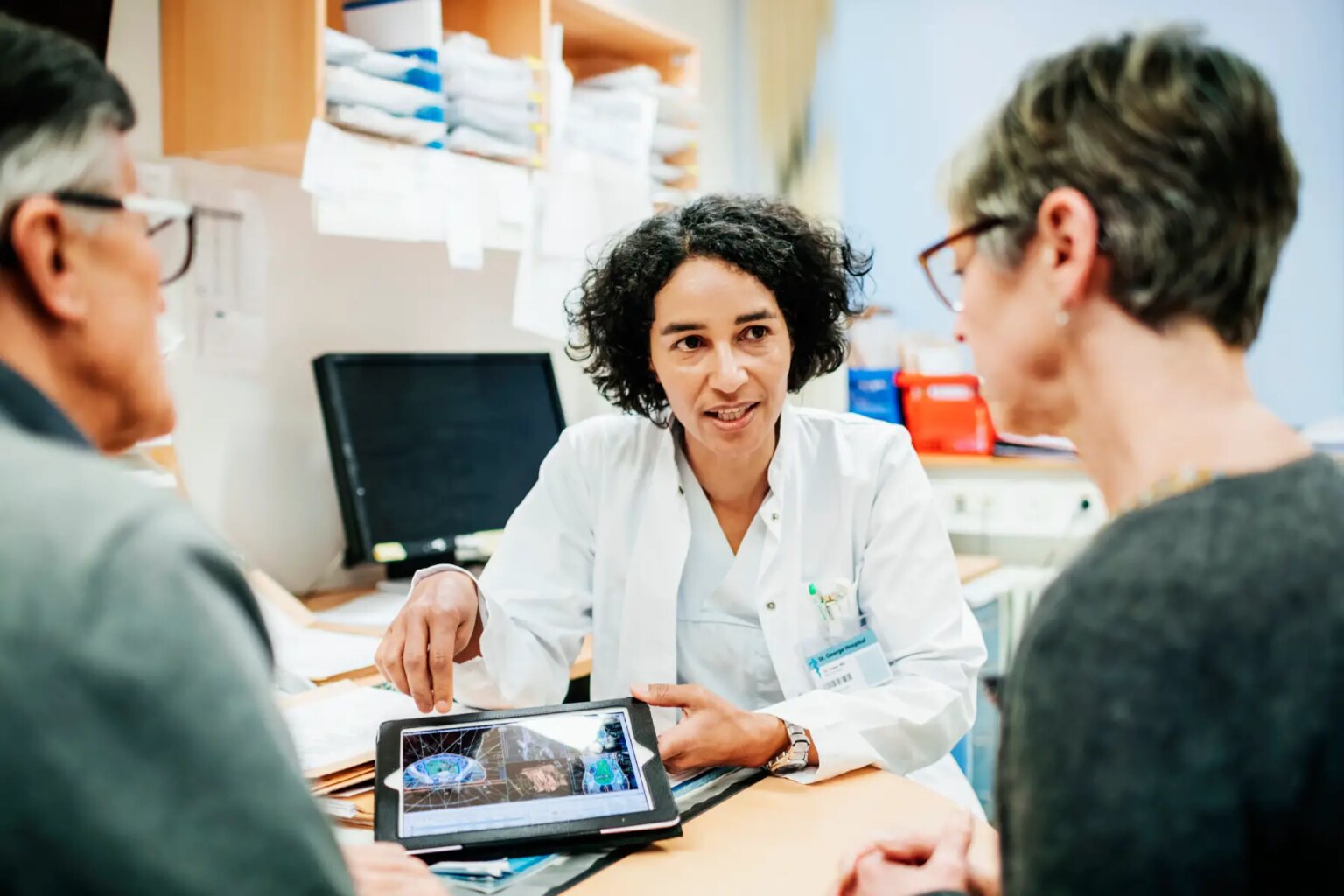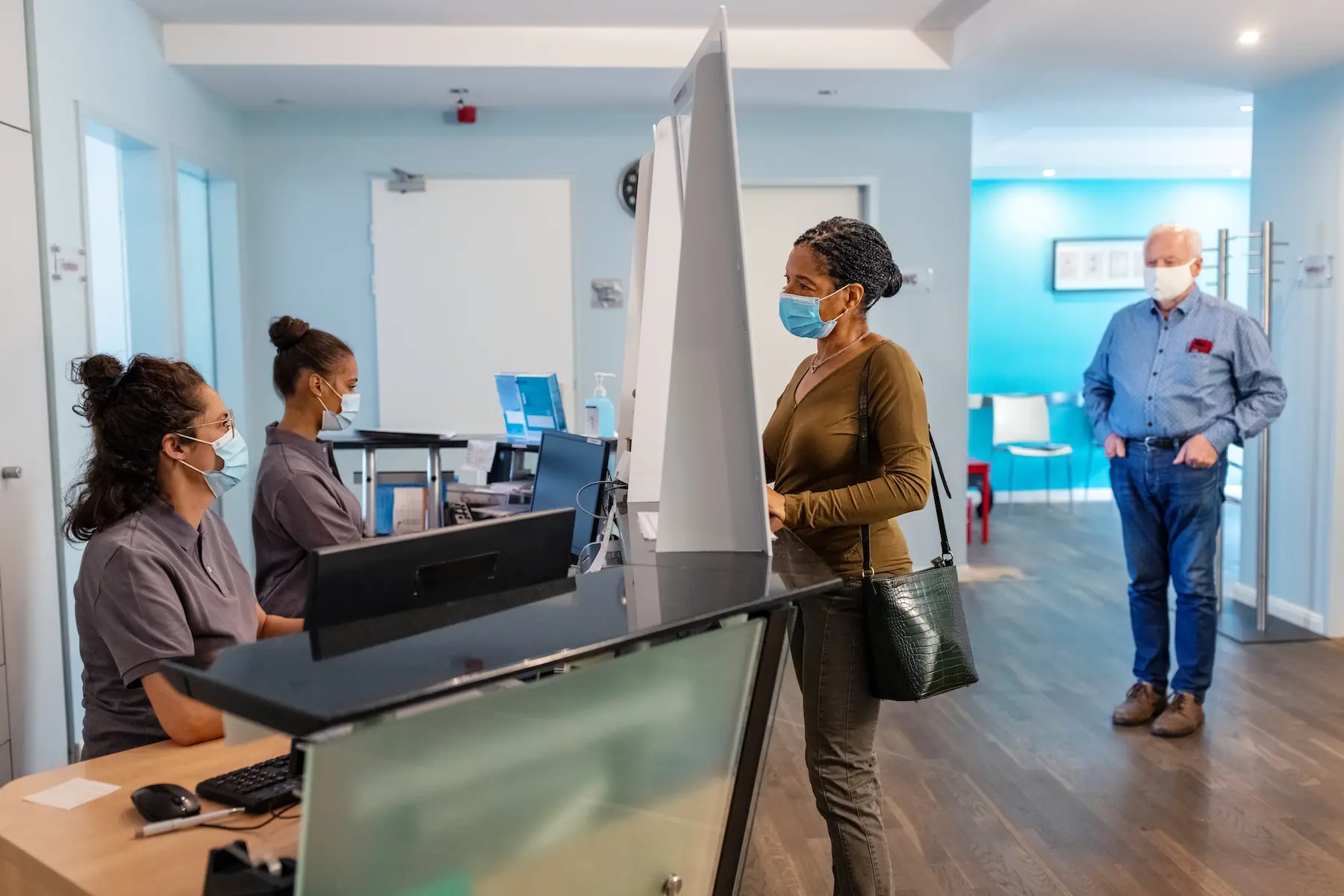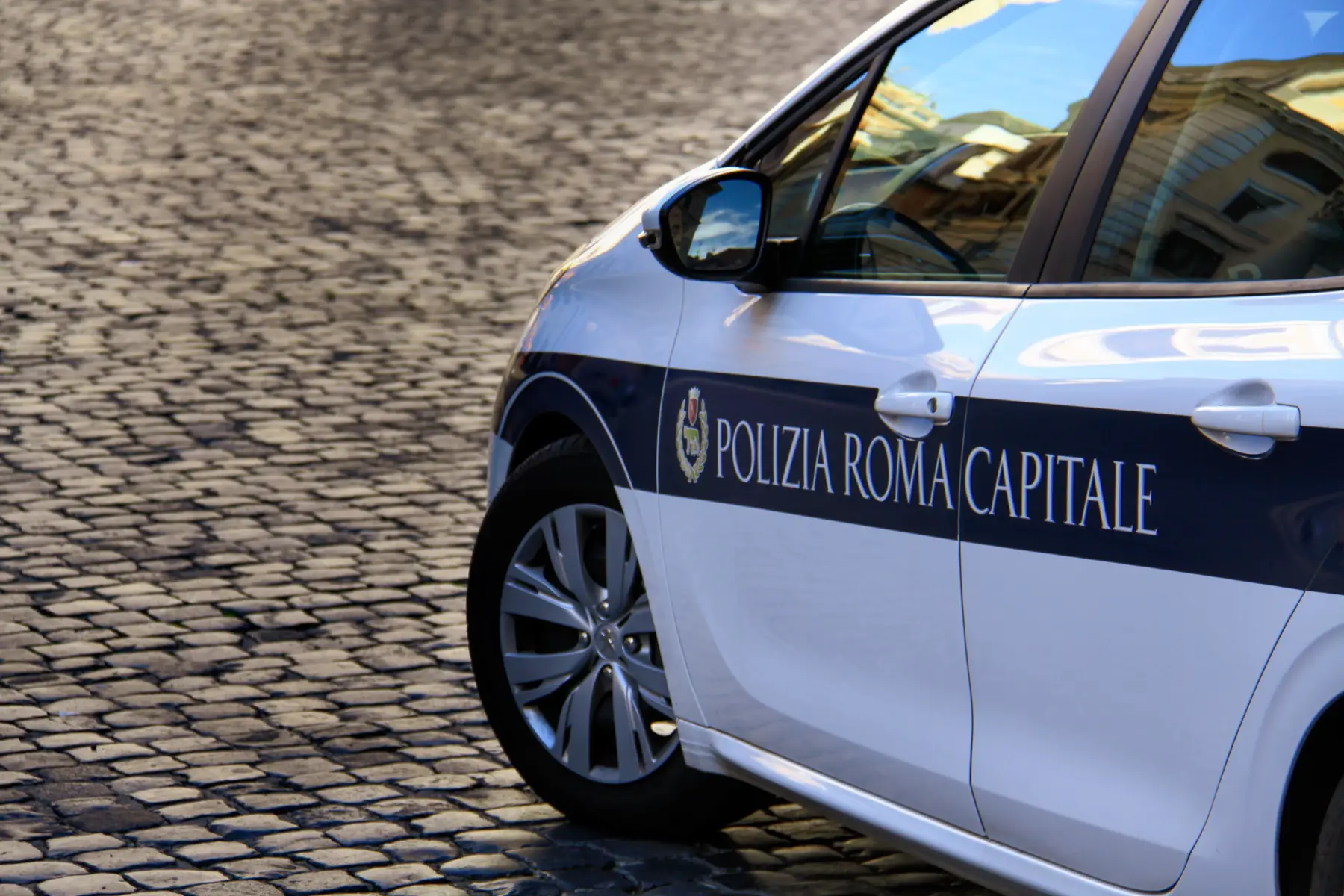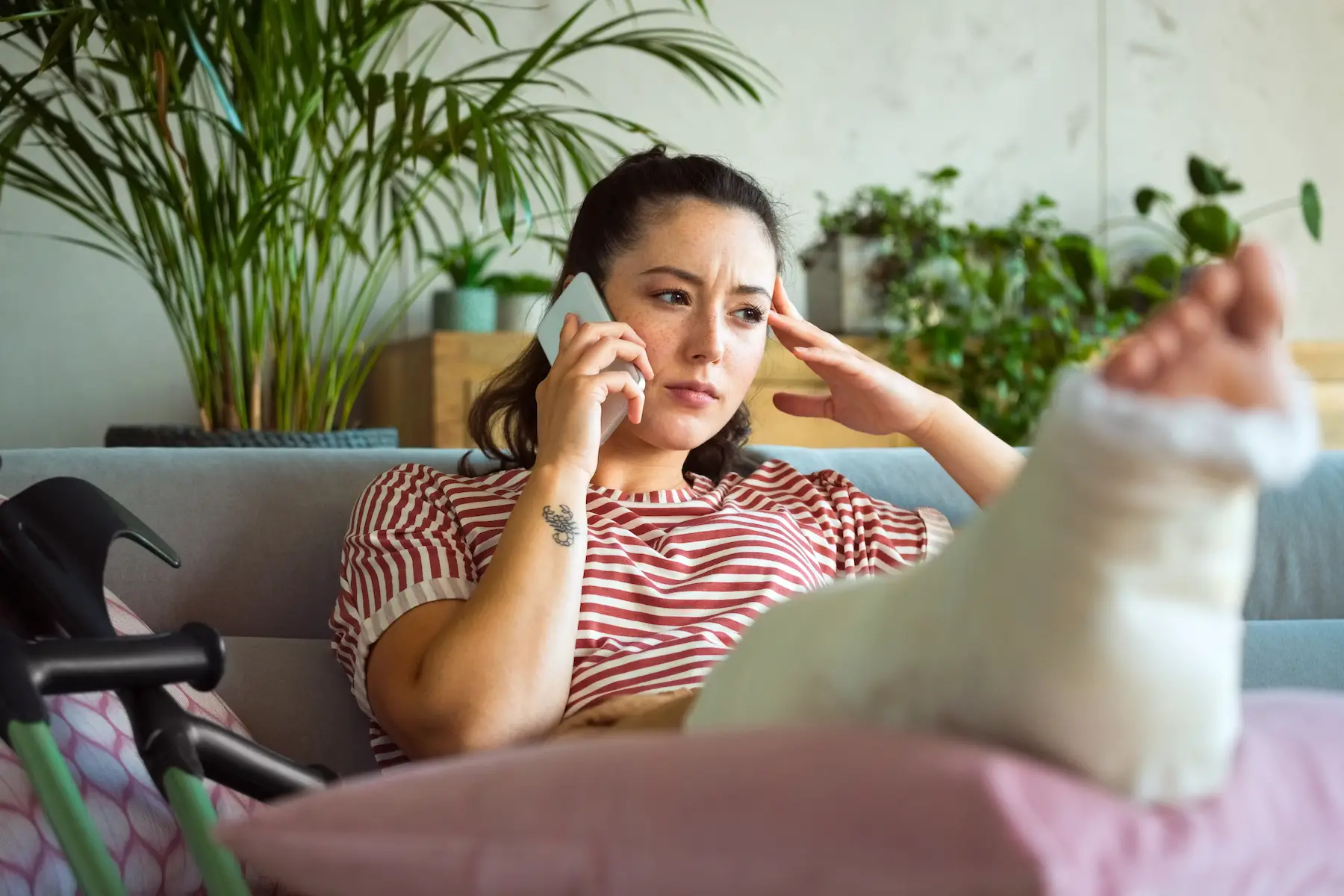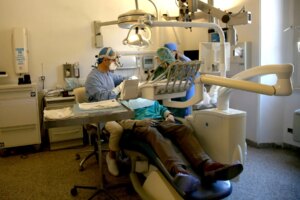Italy’s universal healthcare system covers almost all residents, including expats. Whether you need a family doctor or a specialist, this article explains how to find medical care, register with a GP, make appointments, and what costs to expect.
Continue reading for the following information:
- Overview of doctors in Italy
- Who can see a doctor in Italy?
- How to find a doctor near me in Italy?
- How to see a doctor in Italy: step-by-step
- How much do doctor visits cost in Italy?
- Overview of Italian doctors’ services
- How to complain about a doctor in Italy
- Practical medical words in Italian
- Useful resources
Cigna Global
Enjoy peace of mind while living in Italy with Cigna Global’s long-term international health insurance plans (12+ months). Get tailored coverage, direct billing with many providers, complex case management, and global care on demand, with access to a network of 1.5+ million doctors, specialists, and therapists.
Overview of doctors in Italy
Italy has a universal healthcare system that covers nearly 99% of its residents, including working expats. The system is funded through a combination of public and private health insurance, which ensures that everyone can access a broad range of medical services, including doctor visits (medico) and emergency care.
According to Istat, Italy’s doctor density is on par with the rest of the EU. In 2022, the country had 4.2 doctors per 1,000 residents (EU average: 4.1). That said, the number of doctors can vary a lot depending on the location. For example, Trento had 3.4 doctors per 1,000 patients, while Lazio had 5.0.
And, somewhat appalingly, very few of these are family doctors. In 2022, Italy had 6.7 GPs per 10,000 people. Again, this also differs per location; there were 6.0 GPs per 10,000 inhabitants in the North, 6.4 in the Centre, and 7.2 in the South and Islands.

In Italy, doctors must be registered with the Order of Doctors, Surgeons, and Dentists (Ordine dei Medici Chirurghi e degli Odontoiatri – OMCeO) in their region. These are overseen by the National Federation of the Orders of Doctors, Surgeons, and Dentists (Federazione Nazionale degli Ordini dei Medici Chirurghi e degli Odontoiatri – FNOMCeO).
You can check if your doctor has an active medical license using the government e-portal, Elenco Medici Competenti.
Family doctors or GPs in Italy
Family doctors or general practitioners (GPs – medico di base) are usually the first point of contact for medical issues. They work either alone or in group practices (studio medico), and you are free to choose whichever doctor you prefer. Standard opening hours are from 08:00 to 20:00, Monday to Friday, though exact times vary. In larger cities, some health clinics may also be open on Saturday morning from 08:00 to 12:00. Most health clinics in France are closed on Sundays and public holidays.
GPs deal with routine medical issues, conduct basic tests, and coordinate follow-up treatments. They also keep your medical records and can refer you to other specialists and treatment centers when needed.
Medical specialists in Italy
If you need more specific care, the next step is usually a medical specialist (medico specialista). From dermatologists to neurologists, Italy’s network of specialized doctors is wide-ranging and easy to access, even for newcomers.
Medical specialists usually work in hospitals, private clinics, or group practices. Opening hours can vary significantly depending on the doctor. Public doctors offer consultations between 08:00 and 20:00, Monday to Friday, whereas private physicians typically work from 09:00 to 20:00, with two hours in between for lunch.
You typically need a GP referral (impegnativa) to see a specialist when you rely on public health insurance. If you have private insurance, you can you can skip the line and go straight to the medical specialist yourself.
Who can see a doctor in Italy?
Everyone can access medical care to some degree or another, including asylum seekers, refugees, and tourists. However, for non-urgent medical help, you have to pay large out-of-pocket costs or have health insurance coverage – either public, private, or both.

Our article on health insurance in Italy covers the topic (and costs!) in more detail, but basically, there are both public and private doctors. While they both offer the same levels of quality care, the difference is in the insurance coverage and availability.
For example, public doctors and specialists only see publicly insured patients. So, if you don’t have health insurance or you only have private insurance, you cannot get treatment from a public doctor. On the other hand, while public GP visits are free with public health insurance, they often have longer waiting times and more rushed exams. Private doctors cost more but are more flexible in scheduling appointments and offer longer, personalized visits.
How to find a doctor near me in Italy?
If you are in a life-threatening situation, go to the nearest hospital emergency room (Pronto soccorso). You can also call 118 for ambulance services or 112, which is the free pan-European number for any type of emergency.
If your situation is less immediate (and more you looking for information), you can find doctors and GPs listed on websites like Doctolib and MioDottore. And if you’re uncomfortable speaking Italian, you can also find English-speaking doctors on Mobi Doctor.
For medical issues outside regular opening hours, you can also contact the out-of-hours medical service (Guardia Medica). Check the website of your local ASL (Azienda Sanitaria Locale) for the service’s availability and contact information.
It’s worth noting that it may be more difficult to find English-speaking medical staff in some rural parts of Italy. Still, many towns have a medical center for internationals or tourists called Guardia Medica Turistica. Use any search engine to find one near you.
How to see a doctor in Italy: step-by-step
Step 1: Register with your preferred doctor
Italian residents must first register with their local doctor. While you are free to choose whichever primary care physician you prefer, public insurance allows you to switch only once a year.
You can register with a doctor by going to the local ASL. They will enroll you into the public health system and provide you with a health card (Tessera Sanitaria – TS). This card lists your information, as well as that of your doctor.

Step 2: Book a doctor’s appointment
Although some GPs accept walk-in patients, most require you to schedule an appointment in advance unless it’s for urgent medical situations. You can do so with a quick phone call to the individual medical center or through a central booking system called Centro Unico Prenotazioni (CUP). Specialists don’t do walk-ins.
If you are seeing a medical specialist, you will be asked to pay a health ticket (ticket sanitario) at the time of booking. Consultations with GPs don’t require copayments.
Wait times for public doctors can be long compared to those of private ones. You can generally expect to wait up to four days to see a GP and several weeks or months to see a specialist.
Step 3: Visit the health center
When you go to the scheduled appointment, make sure to bring your TS health card and ID. This card proves that you’re insured, and it allows your doctor to upload any prescriptions for medications, should you need them.
If you don’t have health insurance and you’re going to a private physician, bring your wallet.
In Italy, doctors’ appointments can run over, and it’s normal to wait up to 15 minutes, depending on the day and location. Also, don’t be surprised if they are not overly friendly; while Italian physicians tend to be helpful, they are often swamped and overworked.
How much do doctor visits cost in Italy?
Without proper insurance, a consultation with a public doctor or GP in Italy costs around €30–70, depending on the location and services provided. Visits to specialists typically cost €80–150+, especially when certain diagnostics or procedures are involved. You may also face additional charges for lab work, imaging, and prescriptions.
Public health insurance covers most essential treatments, including doctor visits and emergency care. Some services, like prescription medications and specialist care, require a health ticket, depending on your situation. For example, you can expect to pay €5–15 for prescription medicines and €20–36 for consultations with specialists.
Of course, when you visit a private doctor, the costs may be higher.

Do I need health insurance in Italy?
Yes. Our article on Italian health insurance explains everything in full detail, but as a quick summary:
- Health insurance is mandatory for most residents, including working expats.
- If you are not required to sign up for public insurance, you can register for a hefty fee. Depending on your situation, it may be more cost-effective to take out private insurance.
There are many private health insurers in Italy, and it’s worth shopping around to find the best deals.
Aside from the home-grown health insurance funds, there are also international insurers who cater specifically to expats. These are ideal if you can’t afford the public policy, travel outside the country a lot, or prefer expat-focused care. Some of the largest international health insurance companies that operate in Italy include:
Overview of Italian doctors’ services
Prescription medications
If necessary, the doctor may prescribe you medication, which you can pick up from any pharmacy (farmacia) in Italy. You typically need to pay €5–15, depending on the region and your income bracket.
To find your nearest pharmacy, you can use any search engine or check this government search page (for public pharmacies). This website also lists those who operate outside of regular hours (farmacia di turno or farmacia di guardia).

It’s worth noting that some prescriptions are tax-deductible. Just remember to scan your health card and keep the receipt for when you file your tax return.
Medical tests in Italy
Italian GPs usually perform a physical examination, draw blood, and administer vaccinations at their office. For other medical tests or a full blood workup, they will typically refer you to the nearest medical laboratory.
Test results can be picked up in person or sent via e-mail. In some cases, your doctor will call you or make another appointment to discuss the results, especially when further investigation or treatment is required.
How to complain about a doctor in Italy
If you want to file an official complaint about a doctor in Italy, you can contact the OMCeO in your area. Your complaint should contain your details, the doctor’s name, a clear description of the incident (with dates, if possible), and any supporting documents.
If the issue occurred in a public facility, you can also reach out to the Public Relations Office (Ufficio Relazioni con il Pubblico – URP) of your local ASL. They can handle problems with inappropriate behavior, long wait times, and administration.
For serious cases (e.g., malpractice), you may file a criminal or civil complaint through a lawyer. If you’re unsure what to do, you can also contact the national patient advocacy organization Cittadinanzattiva.
It should be noted that all investigative proceedings are conducted in Italian.
Practical medical words in Italian
Most doctors in Italy can communicate in English. However, it is a good idea to have a phrasebook or a translator app on your phone in case you need to explain more complicated health issues.
You’ll also want to remember some of these medical words in Italian:
| English | Italian |
| general practitioner | medico di base |
| doctor’s office | studio medico |
| appointment | appuntamento |
| pain | dolore |
| headache | mal di testa |
| stomach ache | mal di stomaco |
| back pain | mal di schiena |
| fever | febbre |
| cough | tosse |
| prescription | farmaco da prescrizione |
| pain killer | antidolorifico |
Useful resources
- Salute.gov – official Ministry of Health (Ministero della Salute) website
- MioDottore – search for a specialist or GP in Italy
